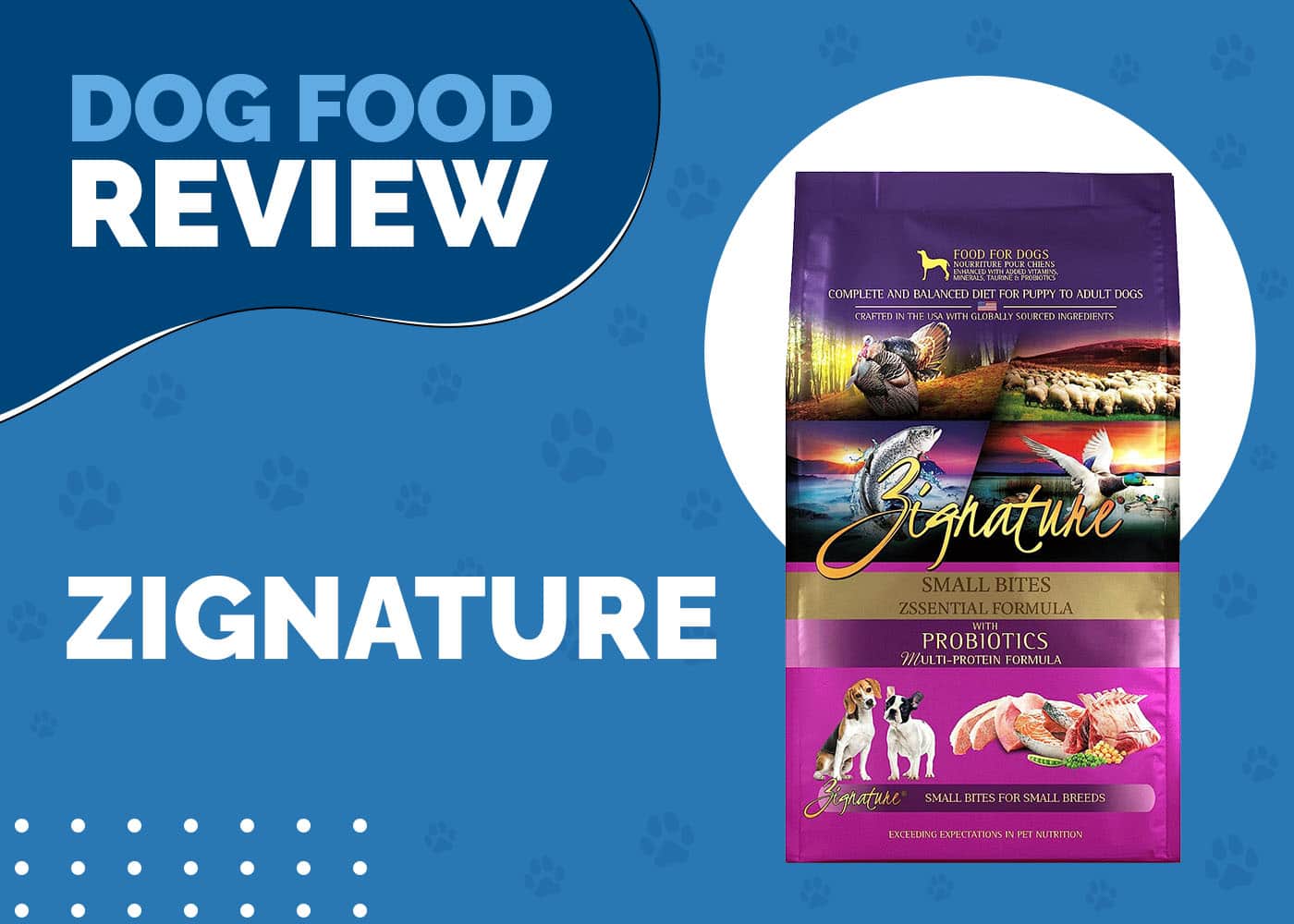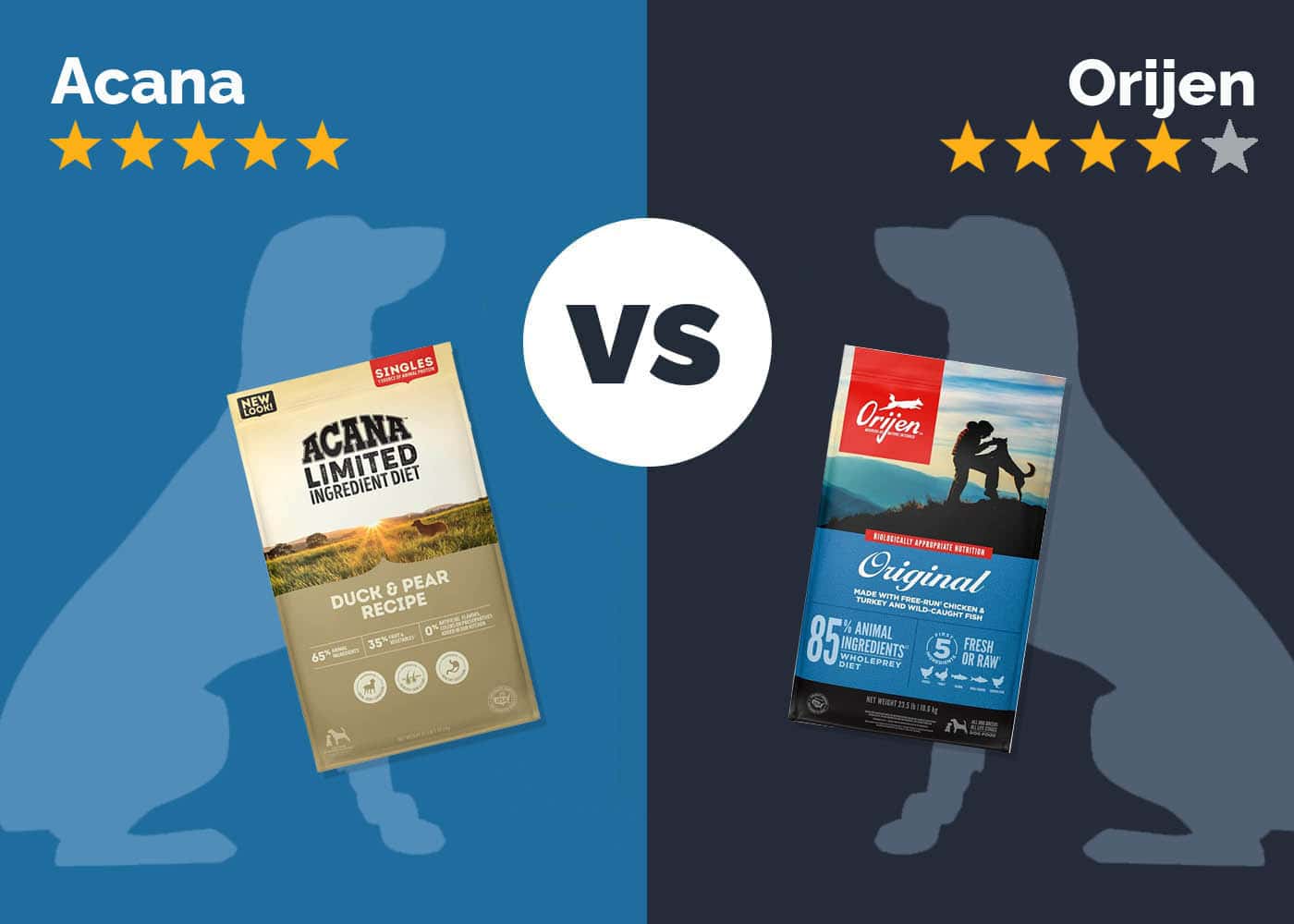Can Dogs Drink Ice Water? Is Ice Water Safe for Dogs?

Updated on
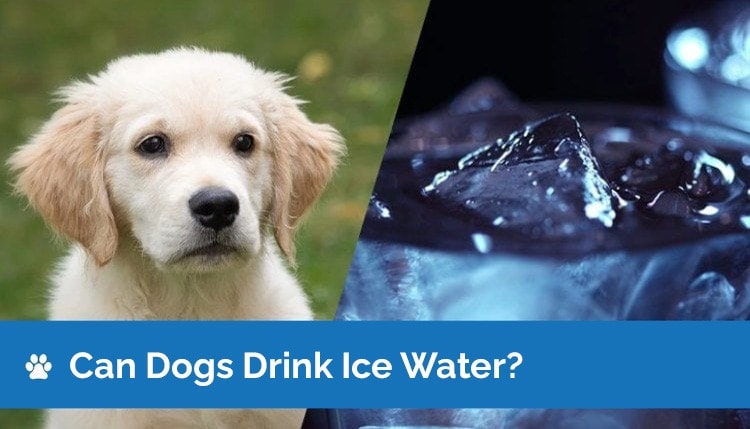
There are few things more refreshing than a glass of ice water to help beat the heat of a summer’s day. It’s cool and hydrating with no added sugars, flavors, or preservatives. But what about your pooch? Is ice water safe for dogs?
Yes. Ice water is safe for dogs.
It’s simply frozen water. However, this topic has become a hot-button debate in recent years. There have been so many claims of owners saying their dogs had to see the vet because of ice-induced heatstroke, full airway obstruction from ice cubes, and bloat.
We’ll take a look at each of these claims and show why these accusations aren’t necessarily true.
 Heatstroke Concerns Debunked
Heatstroke Concerns Debunked
One of the biggest concerns many dog owners have when feeding their dogs ice water is that the ice water isn’t cooling them down. And that drinking ice water on a hot day will increase your dog’s internal body temperature.
The reasoning behind this is that there are claims ice water will trick your dog’s cooling system into believing the dog is cooler than it is. And in extreme heat, this can cause the pup’s temperature to skyrocket to dangerous levels.
However, this simply isn’t the case. If your dog is already uncomfortably warm—like on a hot summer day—their natural cooling systems are already pushed to the limit. Their bodies are not infinite engines that can continue to initiate cooling processes past their limits. Ice water or cold water can help them cool off in these circumstances.
Also, for your dog to realistically experience thermal shock from a rapid cooldown, they’d have to be already on the verge of heatstroke and then force-fed a massive quantity of ice. On the contrary, giving your dog a few ice cubes isn’t going to hurt them at all.
Can Dogs Choke on Ice?
Essentially, everything that a dog puts in its mouth can become a choking hazard. However, your dog has a much higher chance of choking on their favorite toy than an ice cube. With their favorite toy, they may play and aggressively bounce around causing their toy to become securely lodged in a dangerous place.
However, with an ice cube, this is extremely difficult. And that’s because they melt. Ice melts from the outside which in turn lubricates the exterior of the ice cube. If ever an ice cube does get caught in a pup’s throat that they can’t immediately expel, there’s a good chance they’ll end up swallowing it.
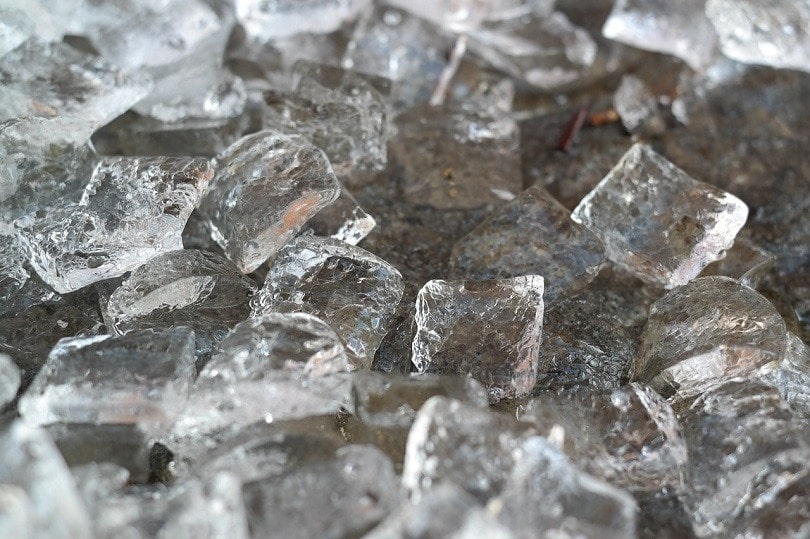
Does Ice Water Cause Bloat?
Another huge concern that people have is that ice water causes canine gastric dilatation and volvulus (GDV)—or bloat. It’s a condition that normally affects deep-chested dogs where the stomach balloons with air, flips and becomes twisted off. Bloat is a very serious condition that requires immediate surgery.
However, ice water has no direct correlation to GDV; however, it’s easy to see why it gets a bad rap.
Bloat is caused by eating or drinking too quickly and ingesting copious amounts of air. Often ice water is given to dogs on a hot day or after exercising. And since the dog may be thirsty, they may lap up the water too fast and swallow a bunch of air. It may seem like it’s the ice water’s fault, but the same could happen with room-temperature water just as easily.
The best way to prevent bloat is to let your dog rest after eating or drinking for an hour or so. This will minimize the chance their stomach will flip and allow time for the air in their stomachs to naturally dissipate.
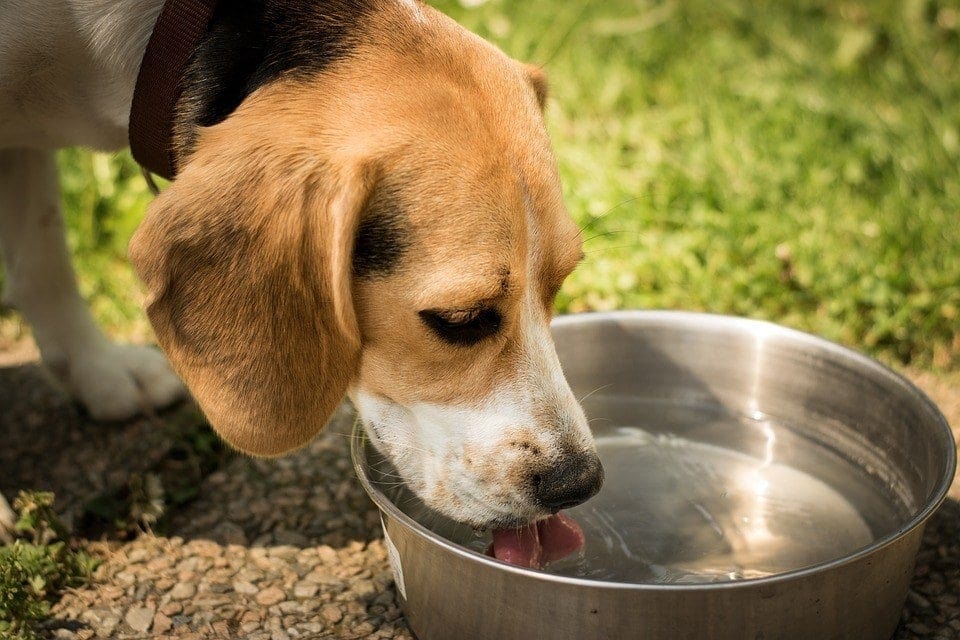
 How to Give Your Dog Ice Water
How to Give Your Dog Ice Water
If you’d like to give your dog ice water, the best way to do so is to just drop a couple of cubes in their water bowl. It should cool down their water enough to provide a nice, refreshing treat as needed.
But if you’ve got a smaller dog, you might want to consider chipping the ice first. This makes the chances of choking much lower and allows the ice cubes to melt even faster. Veterinarians will often let dogs eat ice chips after surgeries or other procedures.
Conclusion
You shouldn’t be scared to feed your dog ice cubes. And while some horror stories are floating around on the internet, you should take these with a pinch of salt. As always, it’s best to consult with your vet before adding anything new to your dog’s diet.
You might also like:
Featured Image Credit: Pink Sherbet Photography, Wikimedia Commons
 Heatstroke Concerns Debunked
Heatstroke Concerns Debunked How to Give Your Dog Ice Water
How to Give Your Dog Ice Water